Betty Codona interview: How the woman behind Sheffield Hatters and women’s basketball in England is still going strong six decades on
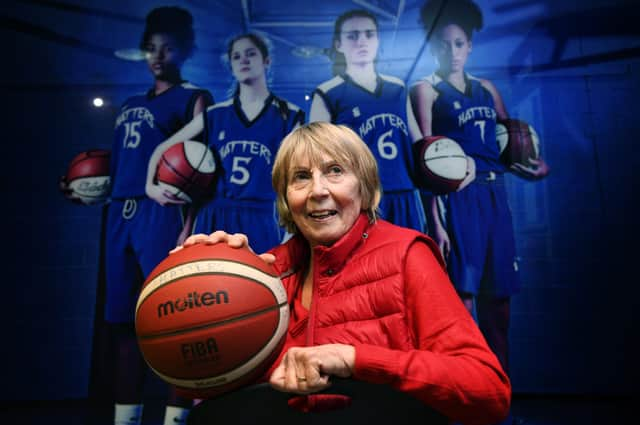

They are all qualities she has required in 60 years as the face of not only the Sheffield Hatters, but of women’s basketball in this country.
She needed that warmth, that generosity of spirit when she was giving up her time in the early 1960s to give schoolgirls constricted by the education curriculum the opportunity to play basketball.
Advertisement
Hide AdAdvertisement
Hide AdThat stubbornness, that refusal to be backed into a corner, was never more evident than this summer when the coronavirus pandemic threatened the existence of the club she had spent her entire adult life building, promoting and supporting.
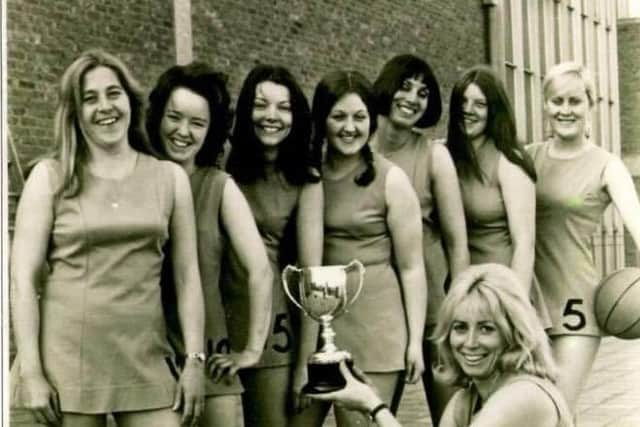

“Usually I’m quite democratically minded when it comes to committee meetings,” she says of the crisis point the senior team faced earlier this summer.
“But I just said, ‘I’m sorry, I don’t know how we’re going to do it, but we’re going to raise the funds to keep the Hatters in the Women’s British Basketball League’.
“I will not accept that we’re out of the league for our 60th year.”
Advertisement
Hide AdAdvertisement
Hide AdGood as her word, Codona led the fund-raising effort, applied for grants, put an arm round the shoulder of would-be sponsors and got her senior team out on the court in the top tier of women’s basketball in October.
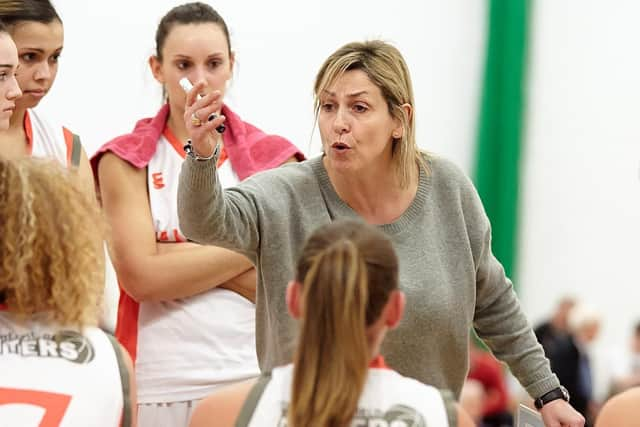

She did it all at the age of 83, all of it voluntary. She has never taken a penny out of the club.
“I even said I’d take out a loan myself to ensure we played this season,” says Codona, as if to emphasise just how much it means to her.
She did not need to go to the bank. Hatters have raised somewhere between £100,000 and £150,000 to pay for three US imports, court hire and various other overheads to fulfil the season.
Advertisement
Hide AdAdvertisement
Hide AdSuch a challenge, such resource, was the furthest thing from her mind more than six decades ago when she was first introduced to basketball.
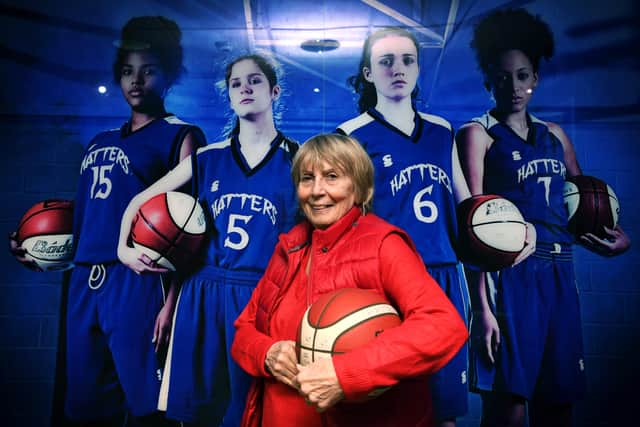

“I was at college training to be a teacher, I played the usual, traditional girls’ sports like netball,” she begins.
“I loved netball, but one day after we finished training the men came in and started playing basketball so we stuck around for a bit, had a look at it.
“I enjoyed it, basketball gives you more room, more opportunity for creativity and personal contribution on a court, rather than netball which is quite rigid.
Advertisement
Hide AdAdvertisement
Hide Ad“I said to the girls, do you fancy having a go at this, and they all nodded. So we found an empty spot in the week and we went in for an hour.
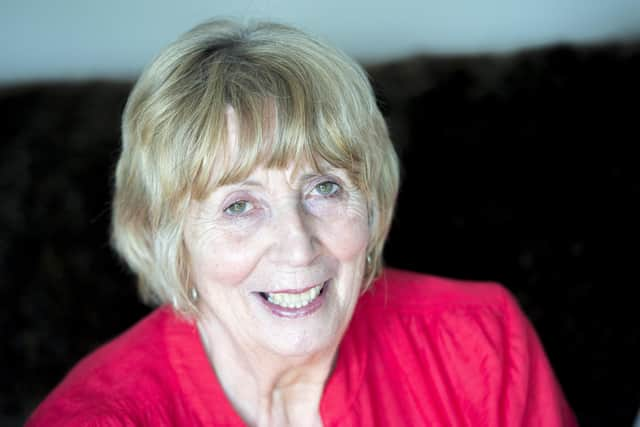

“I laugh now, I don’t know how much it resembled basketball, but we did our best in the circumstances.”
Practice sessions continued but once Codona qualified as a teacher and left college to pursue her vocation, the impetus was lost.
Two years in, frustrated by having to teach only netball and hockey to the girls under her tutelage, she returned to basketball.
Advertisement
Hide AdAdvertisement
Hide Ad“We were constricted by tradition, it’s almost a culture thing,” recalls Codona, who was a teacher at Hatfield House Lane Secondary School in Sheffield.
“Don’t get me wrong, I enjoyed teaching hockey and netball, but I wanted to introduce them to something else.
“The girls at college had enjoyed basketball, so I put basketball into the curriculum to give them a bit of choice.”
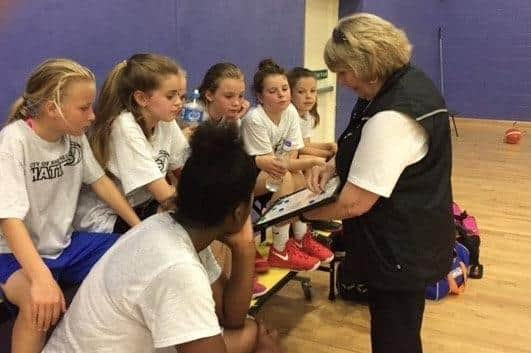

Codona began with 14- and 15-year-olds in their final year, but after that there was nowhere for them to go.
Advertisement
Hide AdAdvertisement
Hide Ad“The girls came to me asking if I’d put a session on so they could keep playing after leaving school.
“I set up a session at night school, and thought I’ll play as well, and that’s how we got the team off the ground.
“We didn’t want to be called popular names like Tigers or Wildcats, so because we were at Hatfield House Lane we became the Hatfield Hatters.”
The year was 1961 and the Hatters were born. The problem was there were no other women’s teams, so Sheffield played against local men’s teams.
Advertisement
Hide AdAdvertisement
Hide Ad“We didn’t win a game but it toughened us up for when we finally did play against women,” she laughs.
Not only did Codona build a club, she built a women’s sport.
“The Basketball Governing Body produced a magazine, I wrote to them and sent a picture of our little lot, and just asked: ‘are there any other women’s teams out there?’
“At that point there wasn’t, but I can only imagine it put the seed of an idea into people’s minds, because Basketball magazine made a big thing about it: ‘where are all the women’s teams? Let’s get some started’.
Advertisement
Hide AdAdvertisement
Hide Ad“That was 1962. From there one or two teams did spring up, and once it got to about six or seven teams there were enough to run a national cup alongside the men’s.
“We got to the first final with a lot of the original players but unfortunately we lost to a team from London that had some extremely tall players.
“It was a good game, we enjoyed playing in the cup final, just not losing it.”
Over the coming years, Hatters did not lose many more finals. In fact, they have won more honours than any other club, 65 in total. They grew as well, developing a junior programme to give girls a pathway right through their teenage years.
Advertisement
Hide AdAdvertisement
Hide Ad“I never thought I was playing a role in growing the game; I just enjoyed it, I loved playing the game. I felt I was part of it, but not a particular part,” she says.
“My focus wasn’t directed that way, it was just simply ‘come on let’s get playing, let’s get more girls playing’.”
Codona, perhaps unsurprisingly, led the recruitment as well.
“I put an ad in the personal section of the Star newspaper, asking for tall women to contact me. I got about three national newspapers asking me why I was chasing tall women – it was quite funny, and I wasn’t expecting it,” she laughs.
Advertisement
Hide AdAdvertisement
Hide Ad“But we did get one woman from the ad who was a former Bluebell Girl, which was a very famous dancing troupe. Jean Ashton, she’s still with us now, takes money on the door for home games. We’re very close friends.”
As the Hatters grew, so did Codona’s family, daughters Vanessa and Lorraine played – “Lorraine was a very accomplished player who benefitted from the creativity aspect of it”. Vanessa coaches the Hatters and is on the staff with Great Britain.
They are all still involved, still working for the good of a well-run community club.
Codona is the figurehead though, in the committee room and on the court. When Hatters host junior camps she is omni-present, watching as many games as she can, offering nuggets of encouragement to girls as young as five who are taking their first steps on their basketball journey.
Advertisement
Hide AdAdvertisement
Hide Ad“Am I proud?” she asks, repeating the question asked of the environment she has built.
“Yes, I’m pleased and proud,” is as far as the first lady of women’s British basketball will go.
She should be.
Time to praise an Unsung Hero...
Betty Codona has already been named BBC Yorkshire’s unsung hero for 2021 – and tomorrow night she could win the national award at the Sports Personality of the Year awards.
Her granddaughter Georgia Gayle, who plays for Hatters and Great Britain, said: “She is the heart and soul of this club, nothing would happen without her. We’re here because of her, everybody looks up to her.”
Advertisement
Hide AdAdvertisement
Hide AdSarah McQueen, a Hatters trustee who nominated Betty, said: “It is her determination and focus that has kept the club pushing forward, achieving crucial funds, supporting new coaches, ensuring the club is accessible for all females of any age or ability.”
“On a personal level Betty has supported me through challenging times and her relentless energy and enthusiasm to drive this club forward is infectious.
“She is a role model not just to myself and to the Hatters Family but across the British Basketball community.”
Hatters welcome London Lions toAll Saints Sports Centre, Sheffield, Saturday at 2.30pm.
Comment Guidelines
National World encourages reader discussion on our stories. User feedback, insights and back-and-forth exchanges add a rich layer of context to reporting. Please review our Community Guidelines before commenting.